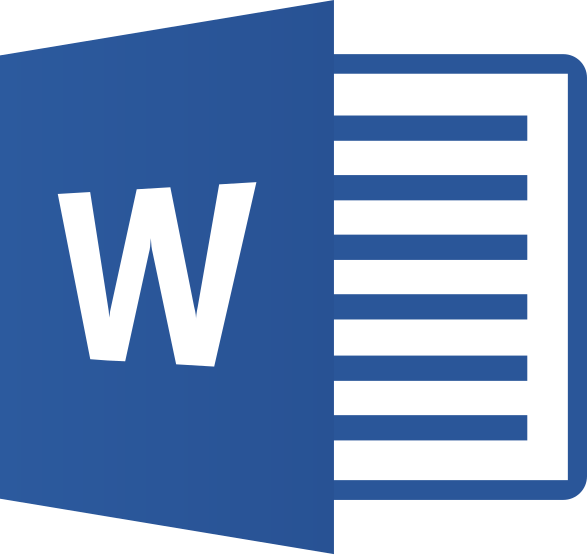Improving Teacher Competence through Digital Technology-Based Learning
DOI:
https://doi.org/10.24269/ijpi.v8i2.7539Abstract
This research aims to explain teacher competency by utilizing digital technology as a learning tool for Islamic religious education. Contribute to developing innovative teaching and increase teacher competency in facing technological challenges in the digital era. The method used is qualitative with a case study approach at the Sumbawa Islamic Pharmacy Vocational School. Data collection techniques were carried out using interviews, observation and documentation studies. The analysis uses qualitative description. The research found that the Islamic education learning process using e-learning affected student learning outcomes. Learning with a blended-learning system, namely a combination of face-to-face and distance learning or offline and online. In the learning implementation stage, Islamic education teachers have carried out essential settings related to using digital e-learning technology, including needs analysis activities, creating instructional designs, steps of using and developing e-learning, and evaluation.
References
Abidin, Z., Destari, D., Syafruddin, S., Arifin, S., & Agustiani, M. (2022). Implementation of Islamic Religious Education Learning and Character in the New Normal Era. Al-Hayat: Journal of Islamic Education, 6(1), 158-169.
Afifah, L., & Umam, N. (2023). Pengaruh Model Pembelajaran Analogi terhadap Keterampilan Berpikir Kreatif pada Mata Pelajaran Bahasa Indonesia Siswa Kelas III. JIIP - Jurnal Ilmiah Ilmu Pendidikan, 6(2), 1370-1375. https://doi.org/10.54371/jiip.v6i2.1735
Angga, Abidin, Y., & Iskandar, S. (2022). Penerapan Pendidikan Karakter dengan Model Pembelajaran Berbasis Keterampilan Abad 21. Jurnal Basicedu, 6(1), 1046-1054. https://doi.org/10.31004/basicedu.v6i1.2084
Anwar, S. (2023). Digital Learning Media in Shape Student Learning Behavior. Uzscience International Journal of Multidisciplinary Research, 1(1), 1-11.
Arifin, S., wJ, S., Prayitno, H., & Waston, W. (2023). Improving The Professional Teacher Competence Through Clinical Supervision Based on Multicultural Values in Pesantren. Nazhruna: Jurnal Pendidikan Islam, 6, 386-402. https://doi.org/10.31538/nzh.v6i3.4037
Bali, M. M. E. I. (2019). Implementasi Media Pembelajaran Berbasis Teknologi Informasidan Komunikasi dalam Distance Learning. TARBIYATUNA: Kajian Pendidikan Islam, 3(1), 29-40.
Hanum, N. S. (2013). Keefetifan e-learning sebagai media pembelajaran (studi evaluasi model pembelajaran e-learning SMK Telkom Sandhy Putra Purwokerto). Jurnal Pendidikan Vokasi, 3(1). https://doi.org/10.21831/jpv.v3i1.1584
Mantau, B., & Talango, S. (2023). Pengintegrasian Keterampilan Abad 21 Dalam Proses Pembelajaran (Literature Review). Irfani, 19(1), 86-107. https://doi.org/10.30603/ir.v19i1.3897
Priyanto, A. (2020). Pendidikan Islam dalam Era Revolusi Industri 4.0. Jurnal Pendidikan Agama Islam, 6(2). https://doi.org/10.18860/jpai.v6i2.9072
Ramdani, R., Rahmat, M., & Fakhruddin, A. (2018). Media Pembelajaran E-Learning Dalam Pembelajaran Pendidikan Agama Islam Di Sma Laboratorium Percontohan Upi Bandung. TARBAWY : Indonesian Journal of Islamic Education, 5(1), 47. https://doi.org/10.17509/t.v5i1.13332
Ratnawati, S., & Werdiningsih, W. (2020). Pemanfaatan E-Learning Sebagai Inovasi Media Pembelajaran PAI di Era Revolusi Industri 4.0. Belajea; Jurnal Pendidikan Islam, 5(2), 199. https://doi.org/10.29240/belajea.v5i2.1429
Sari, E., & Yuhendri, M. (2021). E-Learning Efektif Sebagai Media Pembelajaran Saat Pandemi Covid-19. Mimbar Ilmu, 26(3), 499. https://doi.org/10.23887/mi.v26i3.41842
Sihombing, Y., Haloho, B., & Napitu, U. (2023). Problematika Guru Dalam Pemanfaatan Media Pembelajaran. JUPE : Jurnal Pendidikan Mandala, 8(2), 710. https://doi.org/10.58258/jupe.v8i2.5597
Sudana, I. K., & Anggreni, N. L. P. Y. (2021). Pengaruh Pembelajaran Online dan Semangat Belajar terhadap Pembentukan Disiplin Siswa. JOEAI (Journal of Education and Instruction), 4(2), 305-310. https://doi.org/https://doi.org/10.31539/joeai.v4i2.2361
Suharyat, Y. (2022). Model Pengembangan Karya Ilmiah Bidang Pendidikan Islam. Penerbit Lakeisha.
Syahri, A. (2018). Spirit Islam dalam teknologi pendidikan di era revolusi industri 4.0. ATTARBIYAH, 28, 62. https://doi.org/10.18326/tarbiyah.v28i0.62-80
Widianto, E. (2021). Pemanfaatan Media Pembelajaran Berbasis Teknologi Informasi. Journal of Education and Teaching, 2(2), 213. https://doi.org/10.24014/jete.v2i2.11707
Yaumi, M., & Damopolii, M. (2019). Model Integrasi Teknologi Informasi dan Komunikasi dalam Pembelajaran Jarak Jauh. Al-Musannif, 1(2). https://doi.org/10.5281/zenodo.6183529
Downloads
Published
Issue
Section
License
Copyright (c) 2023 Mainudin Mainudin

This work is licensed under a Creative Commons Attribution-ShareAlike 4.0 International License.
Authors who publish with Istawa agree to the following terms:
Authors retain copyright and grant the ISTAWA: Jurnal Pendidikan Islam right of first publication with the work simultaneously licensed under a Creative Commons Attribution-ShareAlike 4.0 International License (CC BY-SA 4.0) that allows others to share (copy and redistribute the material in any medium or format) and adapt (remix, transform, and build upon the material) the work for any purpose, even commercially with an acknowledgement of the work's authorship and initial publication in ISTAWA: Jurnal Pendidikan Islam.
Authors are able to enter into separate, additional contractual arrangements for the non-exclusive distribution of the journal's published version of the work (e.g., post it to an institutional repository or publish it in a book), with an acknowledgement of its initial publication in ISTAWA: Jurnal Pendidikan Islam.
Authors are permitted and encouraged to post their work online (e.g., in institutional repositories or on their website) prior to and during the submission process, as it can lead to productive exchanges, as well as earlier and greater citation of published work (See The Effect of Open Access).
This work is licensed under a Creative Commons Attribution-ShareAlike 4.0 International License.






